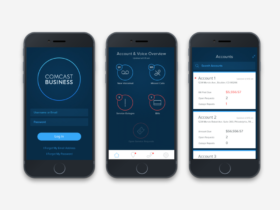Introduction to Business Loan
Running a small business is like sailing a ship. You’re at the helm, charting the course and navigating the waters, but every so often, you need a little push from the wind. For many small businesses, that push comes in the form of a business loan. Whether it’s to expand the business, purchase equipment, or manage cash flow, a business loan can be a vital tool in your entrepreneurial arsenal. In this post, we’ll explore the different types of business loans, eligibility criteria, tips for a successful loan application, understanding interest rates, and the benefits of Small Business Administration (SBA) loans.
Types of Business Loans

Just as there are different types of ships, there are different types of business loans, each designed to meet specific needs.
1. Short-term Loans: These loans are typically for a period of a year or less and can help manage temporary cash flow issues.
2. Lines of Credit: This type of loan gives businesses access to a fixed amount of money that can be borrowed as needed and paid back over time.
3. SBA Loans: Backed by the Small Business Administration, these loans offer lower interest rates and longer repayment terms.
4. Equipment Financing: This loan is specifically for the purchase of equipment, with the equipment itself serving as collateral.
5. Merchant Cash Advances: This is an advance against future credit card sales. Merchant Cash Advances provide quick access to funds based on anticipated revenue by offering an advance against future credit card sales.
Eligibility Criteria

Securing a business loan is not unlike passing a maritime exam. There are certain criteria you must meet and factors lenders consider when deciding whether to approve your loan.
1. Credit Score: Your personal and business credit scores are key indicators of your ability to repay the loan.
2. Business History: Most lenders like SuperPromise prefer businesses that have been operational for at least two years.
3. Financial Statements: Lenders will scrutinize your balance sheet, income statement, and cash flow statement to assess your business’s financial health.
4. Collateral: Some loans require collateral, which can be seized by the lender if you fail to make payments.
Tips for Successful Loan Applications
Applying for a business loan can be a daunting process, but with the right preparation, you can improve your chances of success.
1. Improve Creditworthiness: Pay your bills on time, reduce your debt, and regularly check your credit reports for errors.
2. Prepare a Solid Business Plan: Lenders want to see that you have a sound strategy and a clear path to profitability.
3. Gather Necessary Documents: This can include financial statements, tax returns, business licenses, and contracts.
4. Research Loan Providers: Different lenders have different terms, interest rates, and eligibility criteria. Do your homework and choose the one that best fits your needs.
Understanding Interest Rates
Interest rates are the cost of borrowing money. They can be fixed (remaining the same over the loan term) or variable (changing with market conditions).
The rate you receive will depend on factors such as your credit score, the loan amount, the loan term, and the lender’s policies. It’s crucial to understand the interest rate before signing on the dotted line, as it will significantly impact your total repayment amount.
Mention of Small Business Administration (SBA)
The Small Business Administration (SBA) is like a trusted deckhand for small businesses. They don’t lend money directly but instead guarantee loans made by participating lenders, reducing the lenders’ risk. This makes it easier for small businesses to get approved. SBA loans come with competitive interest rates and longer repayment terms, making them a great option for many small business owners.
Conclusion
Navigating the sea of business loans may seem intimidating, but armed with the right knowledge, you can find the perfect loan to help grow your business. Remember, just like sailing, the process takes patience, preparation, and persistence. So, chart your course, set your sails, and let the wind of business loans propel your business towards success!
FAQ’s On Business Loan
- What is the interest rate for a business loan?
The interest rate for a business loan will vary based on factors such as credit score, loan amount, and repayment terms. It’s important to research and compare rates from different lenders before choosing one.
- Can I get an SBA loan if my credit score is low?
While having a good credit score can improve your chances of getting approved for an SBA loan, a low credit score alone does not disqualify you. The SBA also considers other factors such as business history and financial statements.
- How long does it take to get approved for a business loan?
The approval process can vary depending on the lender and the type of loan, but it typically takes around 1-2 weeks for short-term loans and up to 90 days for SBA loans.














Leave a Reply